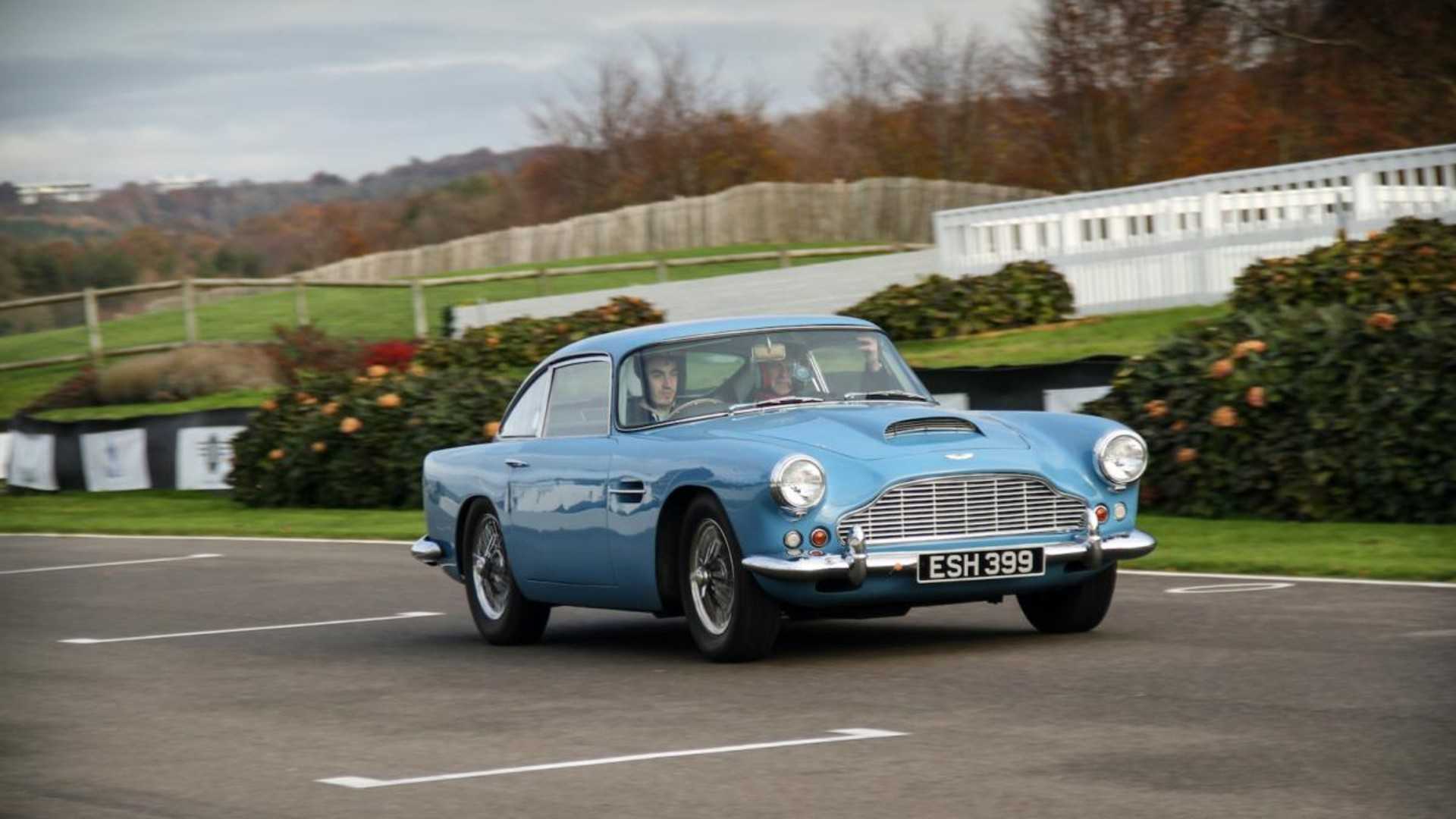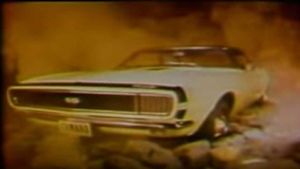
Ever wondered what it’s like to drive one of the British sports car marque’s finest-ever machines?
During the 1950s and ’60s, Great Britain was an automotive powerhouse. Not only were home-grown, mass-produced models being exported worldwide, but the country’s most aspirational machines were taking on the very best of what Europe had to offer. The Aston Martin DB4 was one such car – a true world-beater of its day.
You can’t help but summon up the old phrase ‘they don’t make ’em like they used to’ when ogling this DB4’s flowing bodywork. Characterful headlights flank a long, proud bonnet, the signature Aston grille sits below an aggressive bonnet scoop, and the whole design tapers towards a blunt rear end. Its handsome looks might have been conceived to outshine a Ferrari, but ironically the design itself comes from Italy. Coachbuilder Carrozzeria Touring in Milan styled the superleggera tubular-frame body.
More on Aston Martin
- Why The Aston Martin DB4 GT Zagato Is Worth $13 Million
- The $900K Aston Martin Lagonda Taraf Doomed To Obscurity
The Aston Martin’s interior is primitive by today’s standards, but harks back to an era when a car’s cabin had more in common with that of an aircraft. Intricate gauges and dials fill the space behind a large wooden steering wheel, and a tall gearlever protrudes from the floor. Wide leather seats offer plenty of comfort for those grand tours, but not much in the way of support. There’s a pair of seats in the back, yet the lack of legroom means they are more ornamental. Back in the late ’50s, this was pinnacle of GT motoring.

There’s something utterly charming about this car. Its intricacies, the solid clunk the door makes as it slams shut, even its oily smell – all culminate in a true sense of occasion. All DB4s are special in that regard, but this beautiful blue example more than most. Its current custodians tell us it once belonged to none other than racing legend Jim Clark.
Under that hood, which stretches off into the horizon, is a naturally aspirated 3.7-litre straight-six made of aluminium alloy, which was very forward thinking for its time. No less than 237bhp makes its way to the rear wheels via a four-speed manual gearbox.

The car starts with a cough before firing into life. A continuous murmur at idle and rich smell of fuel transport you back to a time when wearing a seatbelt was optional. You can feel the DB4’s pulse with every vibrating component, eager to begin.
At low speeds a modicum of elbow grease is required to wrestle the wheel, but steering effort eases as momentum builds. The heavy pedals are noticeably offset, leading to a slightly diagonal seating position that you eventually accept as being a quirk of this near-60-year-old car.
There’s a wonderfully mechanical feeling to every gearchange, and a delightfully metallic click as each cog slots into place. Unlike a Jaguar E-type of the period, the Aston features synchromesh to prevent the grinding of ratios. Blip the throttle and drop a gear to turn up the volume on the DB4’s rich baritone soundtrack. It bellows and grunts, until a more harmonious note is reached higher in the rev range.

For this car’s era, a 0-60mph dash in under 10 seconds and 140mph top speed was impressive; today, the true enjoyment is to be found in the way the Aston moves. There’s a very pure sense of what the front wheels are doing through the steering as you guide the nose towards an apex. It feels like a heavy car, but initial understeer melts away as it begins to gradually break traction.
The predictable body roll and old-fashioned tires allow for gracious slides when pushing through sweeping bends. However, while the Aston’s brakes might have been cutting edge when new, being discs and servo assisted they leave much to be desired when you arrive at a corner in a hurry today.

The DB4 is best enjoyed when bumbling through the British countryside at a sedate pace, as opposed to being hustled around the Goodwood circuit. People smile and wave, as you breeze by with a true sense of pride in what you are driving. In many ways, an outing in this slice of history is something of a public service, a reminder of a time when Britannia ruled more than just the waves.
Should you buy one? Yes – if you’ve got the capital… DB4 Series II such as this one sell for hundreds of thousands of pounds, and values are only heading in one direction. Being a classic British car it will likely need some regular TLC, but you’ll be in a rarefied club of about 60 in the UK if you decide to indulge.



